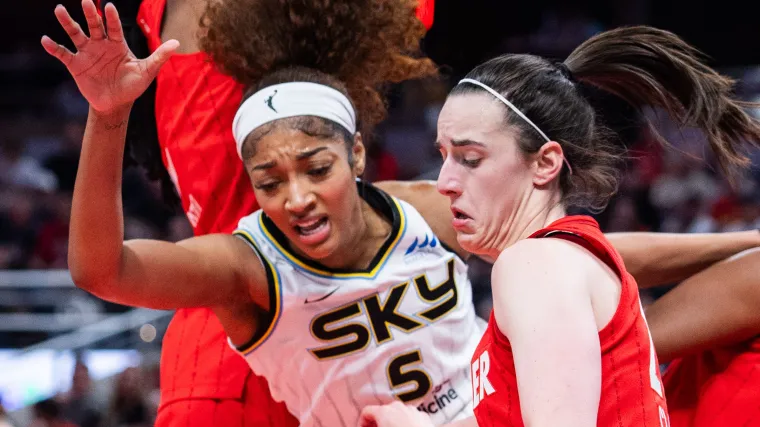The competitive landscape of women’s basketball has intensified as recent comments from former NFL player Robert Griffin III shed light on the evolving rivalry between Angel Reese and Caitlin Clark. Reports indicate that Reese has developed a strong dislike for Clark, stemming from the media’s persistent comparisons between the two players. This revelation has sparked discussions about the pressures athletes face in the spotlight and how such rivalries can impact their careers.
Both Reese and Clark have made significant marks in the WNBA. Reese, a standout center for the Chicago Sky, has been named an All-Star in her first two seasons. Her powerful presence on the court has made her a key figure in the league’s rising popularity. Clark, on the other hand, is recognized as a generational talent who has elevated the game of women’s basketball, showcasing exceptional skill and leadership.
Despite their accomplishments, the constant media focus on their rivalry has taken a toll on Reese. In a post on social media, Griffin condemned an offensive edit that depicted Reese in a derogatory manner. He used the opportunity to share insights about Reese’s feelings regarding Clark, mentioning that individuals close to Reese revealed her growing resentment toward Clark due to the continuous comparisons made by journalists.
“People in Angel’s inner circle called me and told me I was right and Angel Reese has grown to hate Caitlin Clark because of the media always asking her about Caitlin and being constantly compared to her,” Griffin stated. This comment has added fuel to the already heated discourse surrounding the two athletes.
Reese’s frustration is evident both on the court and during interviews, where she has often been asked about Clark. Such inquiries can overshadow individual achievements, leaving players feeling overshadowed. This dynamic raises questions about how media narratives shape public perception and athlete relationships.
As the rivalry continues to unfold, many hope for reconciliation between Reese and Clark. The competitive nature of sports often leads to misunderstandings, especially when amplified by media coverage. Both athletes have the potential to redefine their narrative by focusing on mutual respect and collaboration rather than rivalry.
The aftermath of Griffin’s comments may lead to a broader conversation about the responsibilities of the media in covering sports. As fans and analysts dissect their rivalry, it is crucial to remember the human element behind these athletes. Their emotions, challenges, and triumphs are intertwined with their performance, making it essential to approach narratives with sensitivity.
In a world where social media amplifies voices, the hope is that Reese and Clark can move beyond the media-manufactured rivalry and focus on their respective journeys in the WNBA. Both players have made significant contributions to the sport, and the future may hold opportunities for collaboration rather than conflict.
